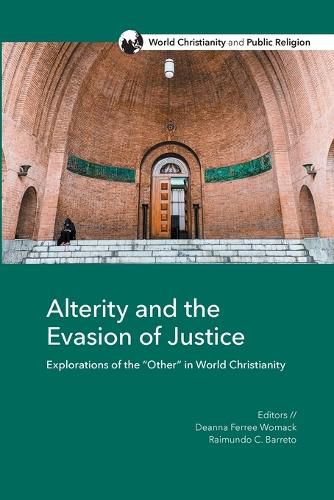Readings Newsletter
Become a Readings Member to make your shopping experience even easier.
Sign in or sign up for free!
You’re not far away from qualifying for FREE standard shipping within Australia
You’ve qualified for FREE standard shipping within Australia
The cart is loading…






As a contribution to the Fortress series on World Christianity as Public Religion, this volume delves into questions of religious alterity and justice in World Christianity. This volume asks what histories, practices, or identities have been left invisible in the field of World Christianity, and emphasizes liberationist concerns to consider what the field has overlooked or misrepresented. It recognizes that World Christianity scholarship has elevated voices of marginalized Christians from the Global South and challenged Eurocentric modes in the study of religion, but scholars of World Christianity must also attend to the margins of the field itself. Attention to the overlooked "other" within World Christianity scholarship reveals communities that have been excluded and questions of justice within the Global South that have been neglected. This volume points to gender, sexuality, and race as intersectional themes ripe for exploration within the field, while also identifying areas of study that have fallen outside the dominant World Christianity narrative, such as the Middle East and the theological expression of indigenous and aboriginal communities in the aftermath of European colonization. The contributors to this volume advance a robust intercontinental conversation around alterity and the evasion of justice in World Christianity.
$9.00 standard shipping within Australia
FREE standard shipping within Australia for orders over $100.00
Express & International shipping calculated at checkout
As a contribution to the Fortress series on World Christianity as Public Religion, this volume delves into questions of religious alterity and justice in World Christianity. This volume asks what histories, practices, or identities have been left invisible in the field of World Christianity, and emphasizes liberationist concerns to consider what the field has overlooked or misrepresented. It recognizes that World Christianity scholarship has elevated voices of marginalized Christians from the Global South and challenged Eurocentric modes in the study of religion, but scholars of World Christianity must also attend to the margins of the field itself. Attention to the overlooked "other" within World Christianity scholarship reveals communities that have been excluded and questions of justice within the Global South that have been neglected. This volume points to gender, sexuality, and race as intersectional themes ripe for exploration within the field, while also identifying areas of study that have fallen outside the dominant World Christianity narrative, such as the Middle East and the theological expression of indigenous and aboriginal communities in the aftermath of European colonization. The contributors to this volume advance a robust intercontinental conversation around alterity and the evasion of justice in World Christianity.